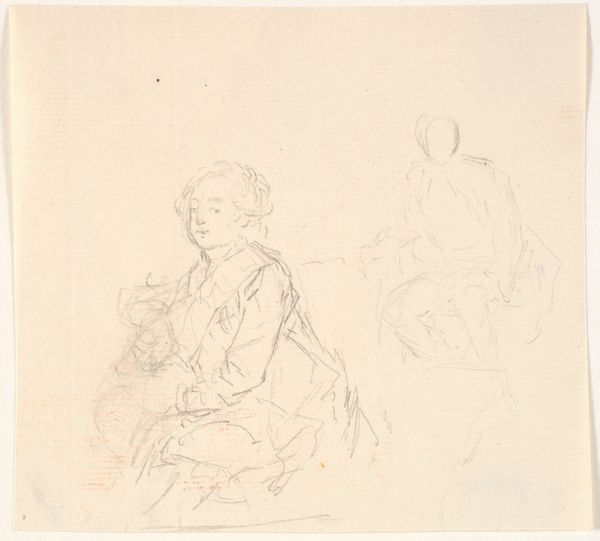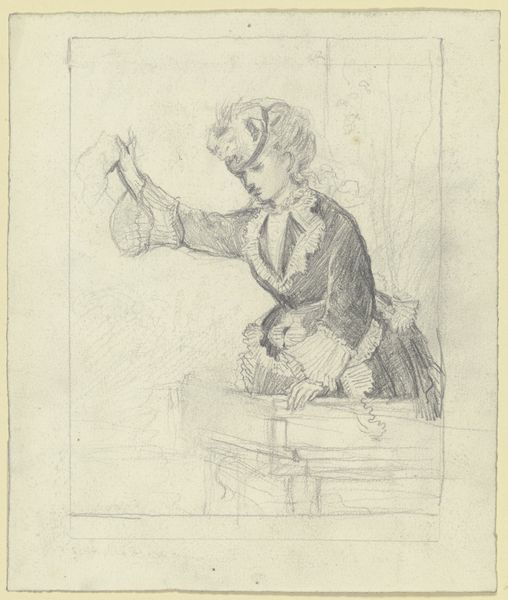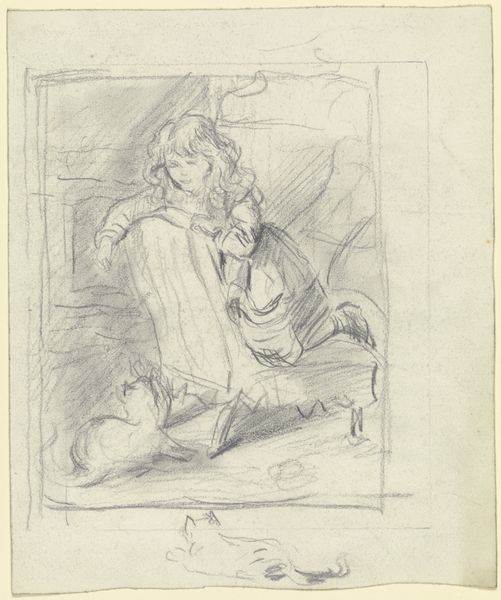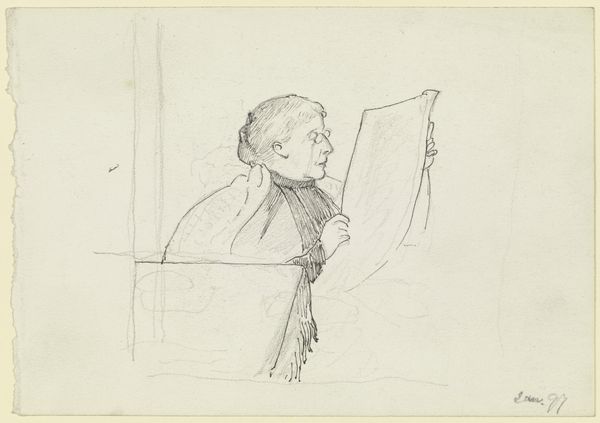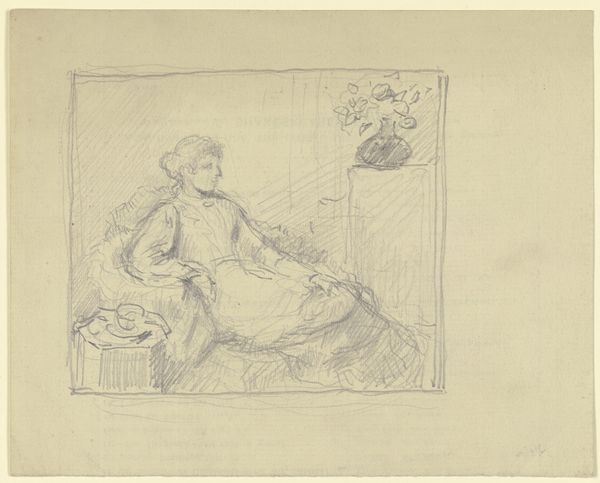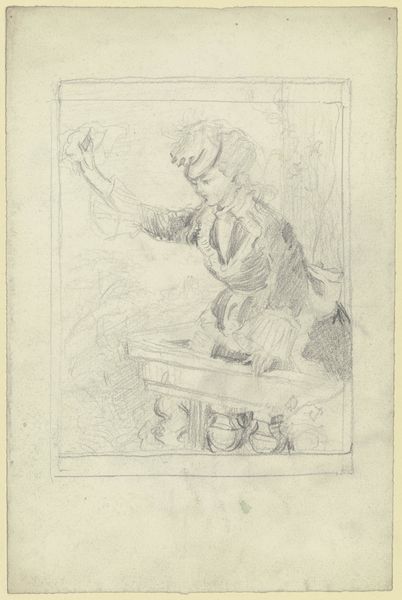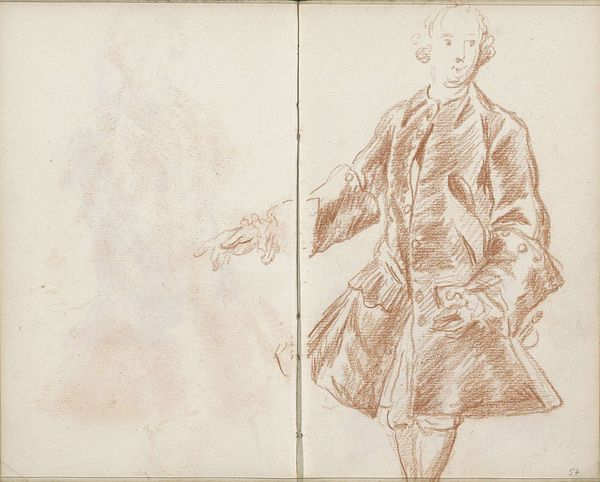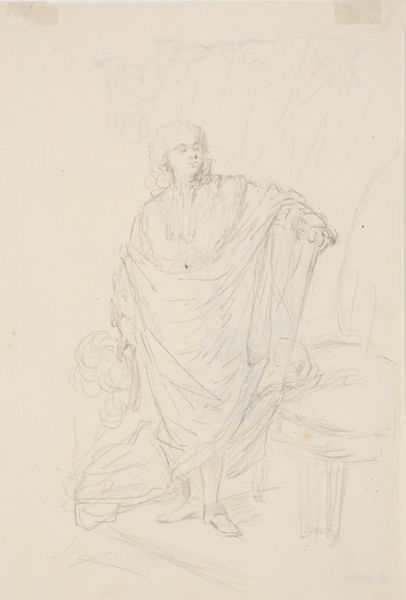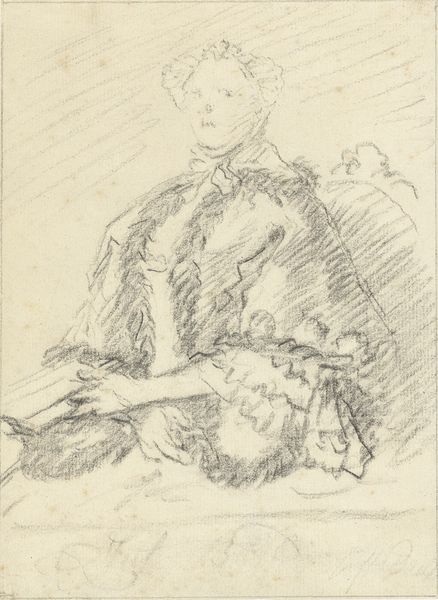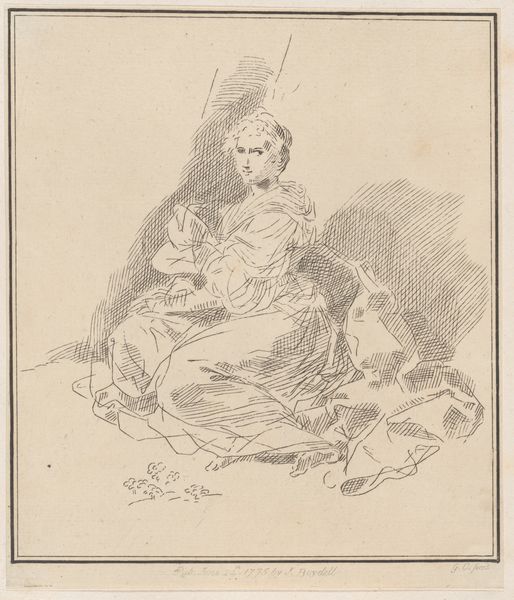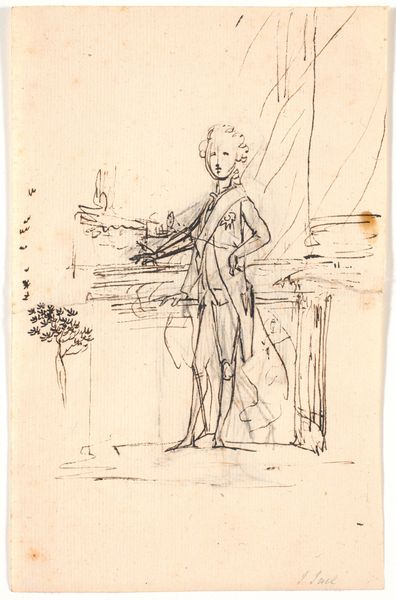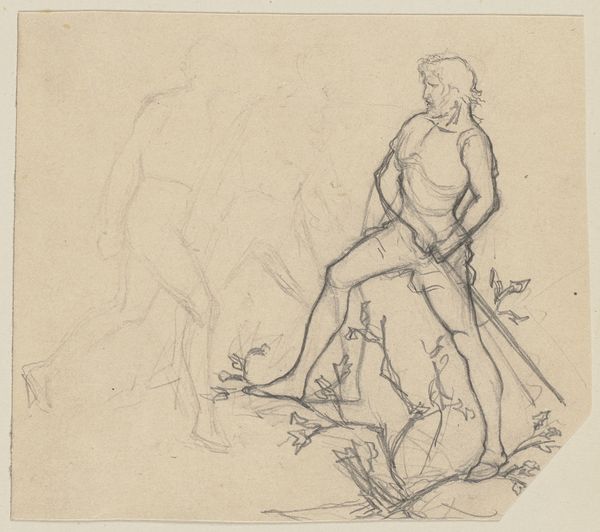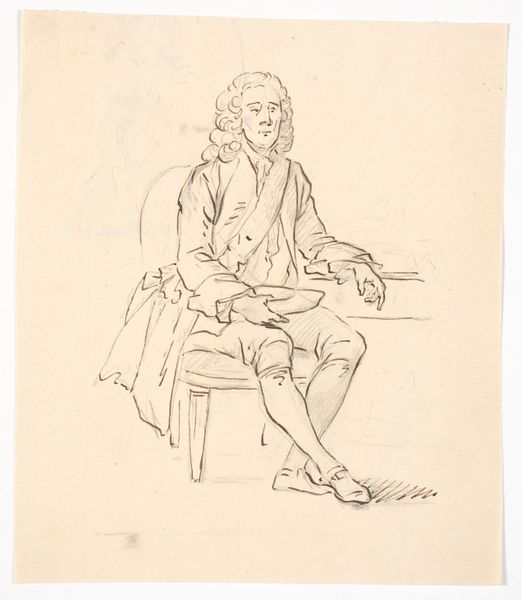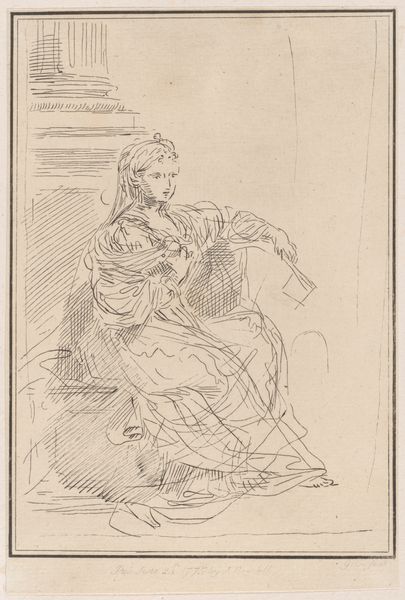
Copyright: Public Domain
Curator: What a wonderfully intimate sketch. We're looking at Otto Scholderer's "Luise Scholderer auf der Ottomane," created in 1873. It's a pencil drawing, currently held at the Städel Museum. Editor: My first impression is quietude, almost fragile. The pencil lines are so delicate, suggesting a fleeting moment captured. Is that grid I see? A framework for something more monumental? Curator: Possibly! Seeing those deliberate, measured lines, reminds us of the labor and time invested. He uses pencil, seemingly modest, but rendering fabric and light, isn't modest at all. One also notes it makes the work feel as a sketch. Editor: Indeed! The subject is captured very precisely. The fact he's charting it this way makes me wonder about class and expectations. Was his wife supposed to always sit still while he worked on a masterpiece, the great artist, the male mind? I am so tired about thinking about what happens behind! Curator: Perhaps she was a collaborator, a muse but also part of that creation, of the whole idea? Think about how the medium, a "simple" pencil drawing, defies notions of "grand art." Pencil is immediate, accessible. It allows the artist to directly record their thoughts, unlike, say, a heavily layered oil painting with underpainting, revisions, and assistants... Editor: That's a nice interpretation. However, I look at this and think about accessibility in a more concrete way. Pencil was one of the materials more and more common after the Industrial Revolution that enabled a broader public to try to be artistic. Before that, such artistic skills were often mostly constrained to people who were somehow linked to workshops. In my mind the image of an intimate home moment can only emerge after a pencil industrial process took place, is what brings a unique atmosphere for me in this art piece. Curator: A great point, thinking how technologies shaped possibilities! So, Luise's quiet repose rests on a bed of industrial processes we barely consider now. In essence the art does not only display, but hides so much! Editor: Precisely! What feels "Romantic," has at the background processes, industries. Every delicate stroke stems from a network of extraction, production and distribution. Even stillness bears traces of activity! It feels less a portrait of leisure and instead, and of consumption. Curator: Beautifully put. This conversation has definitely coloured my experience of the work, in such an interesting and unexpected way.
Comments
No comments
Be the first to comment and join the conversation on the ultimate creative platform.
